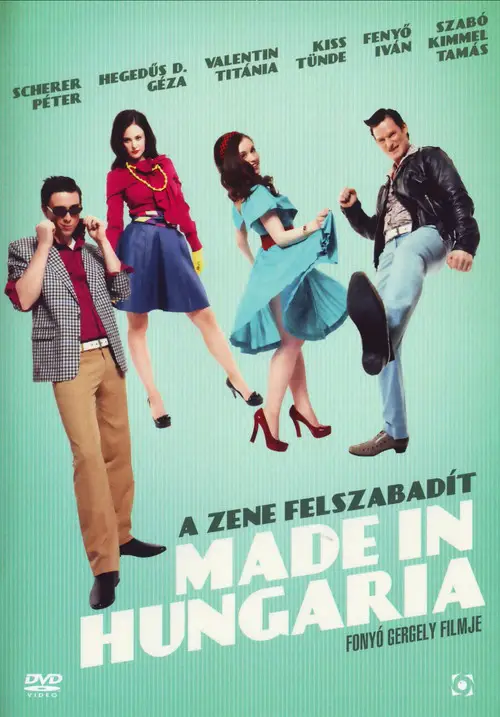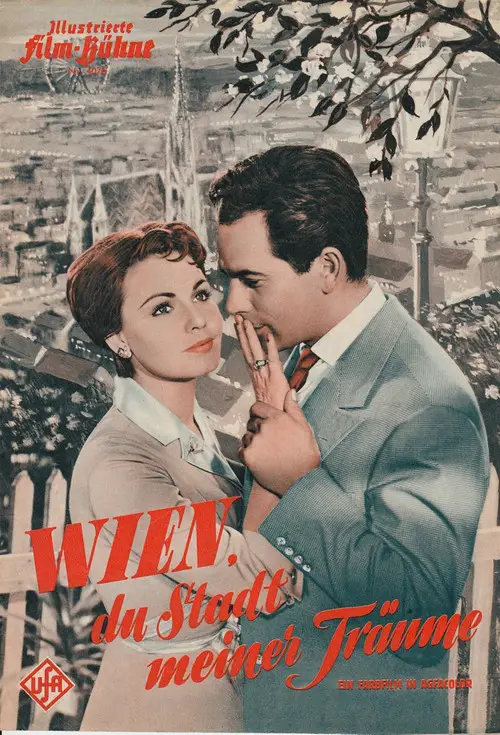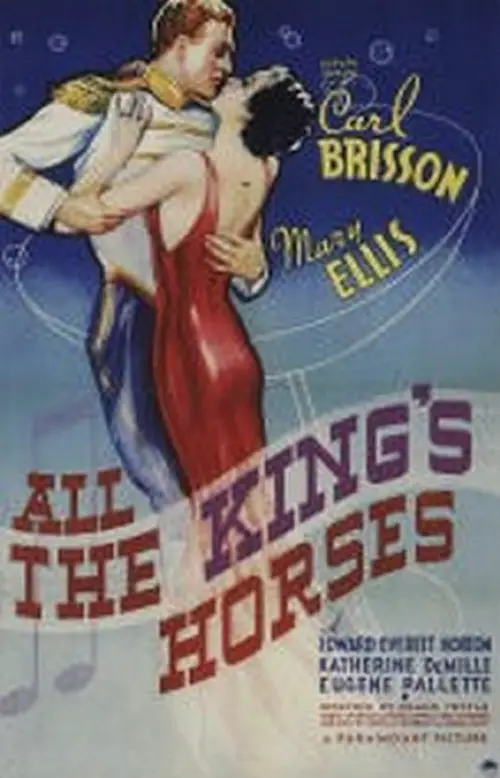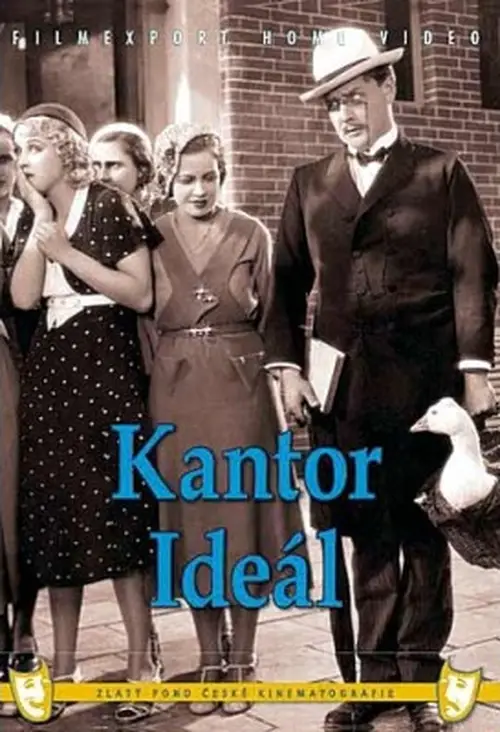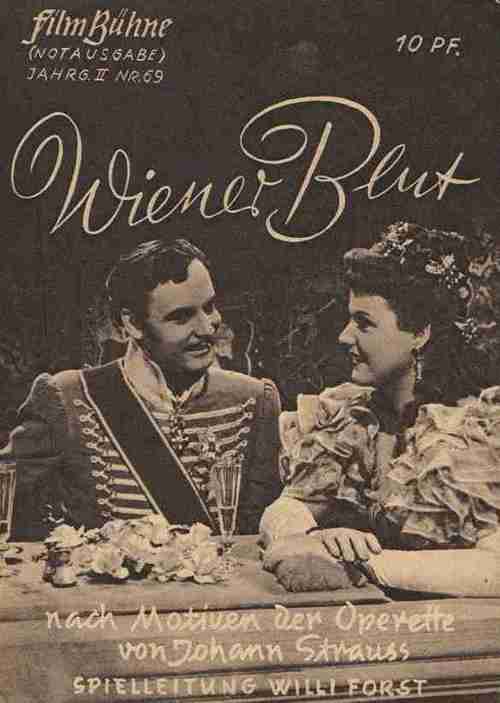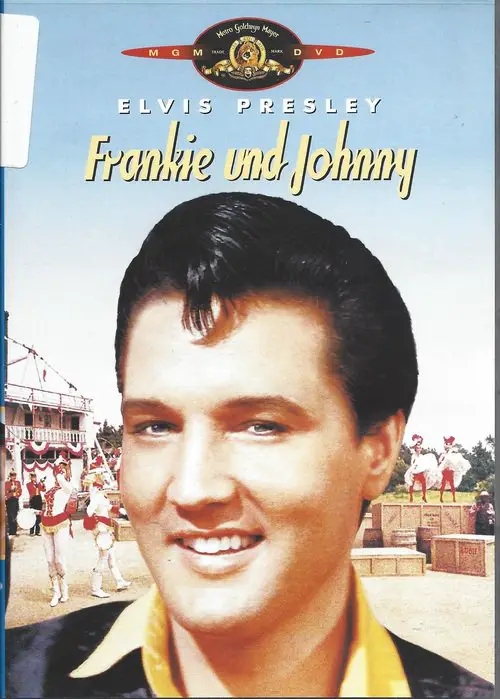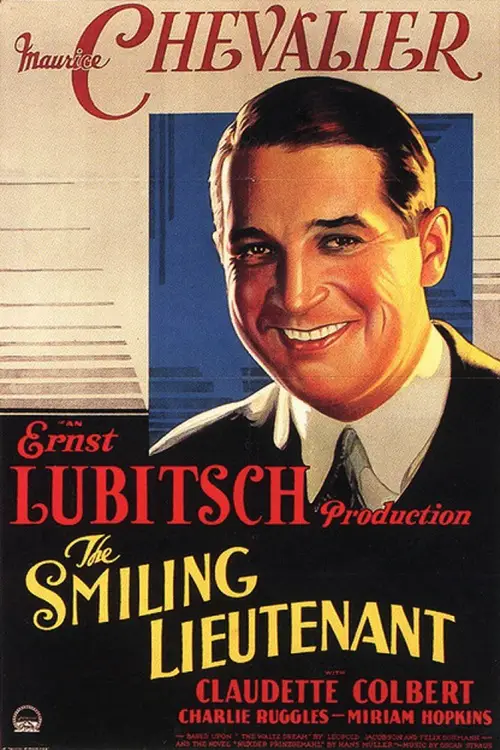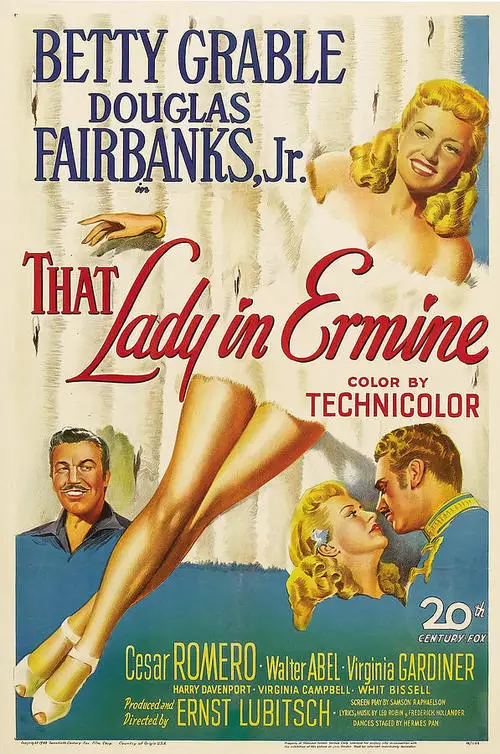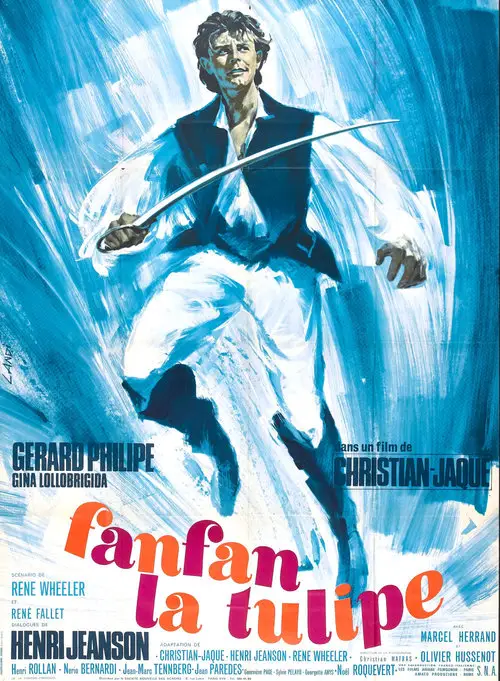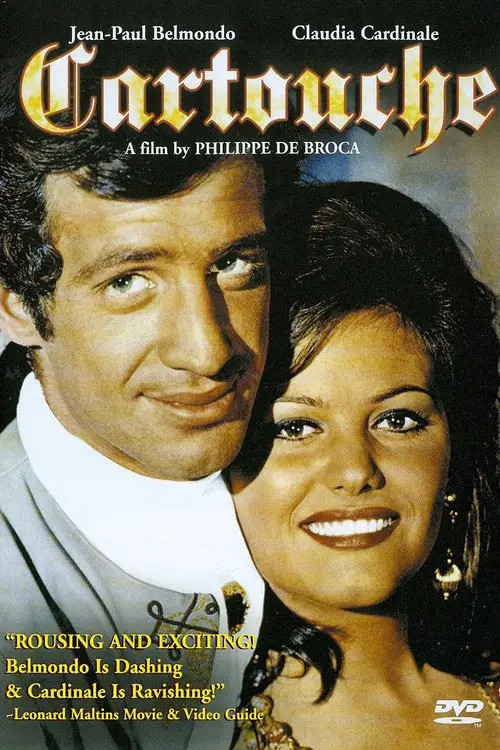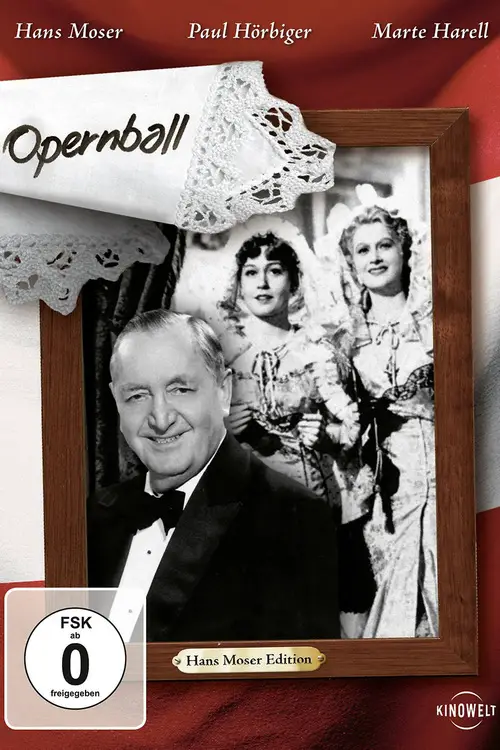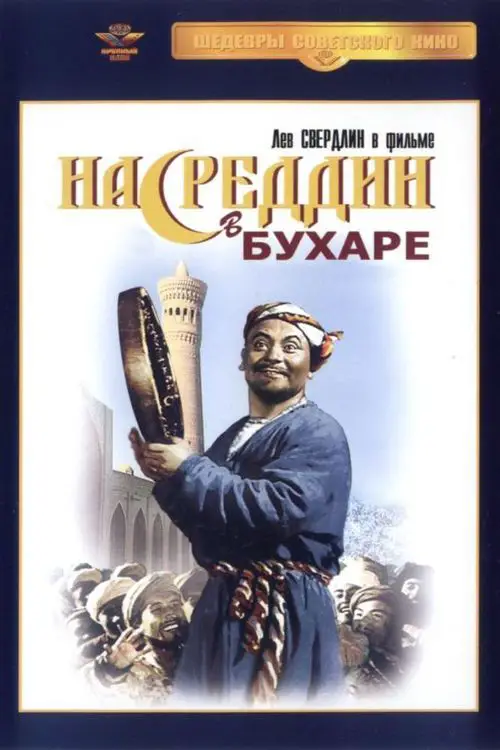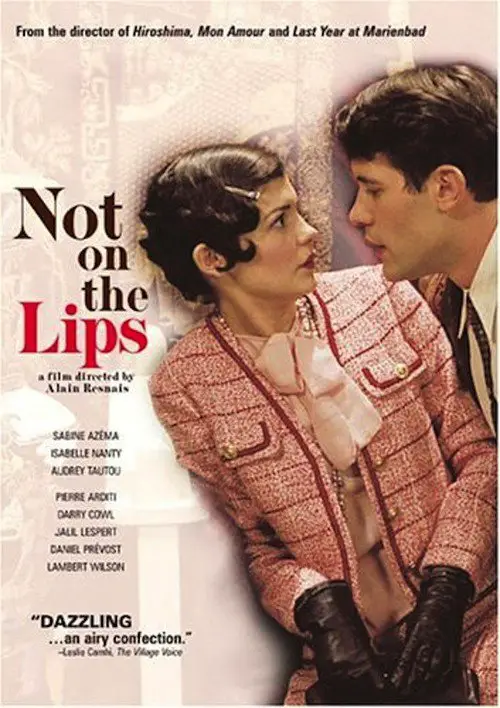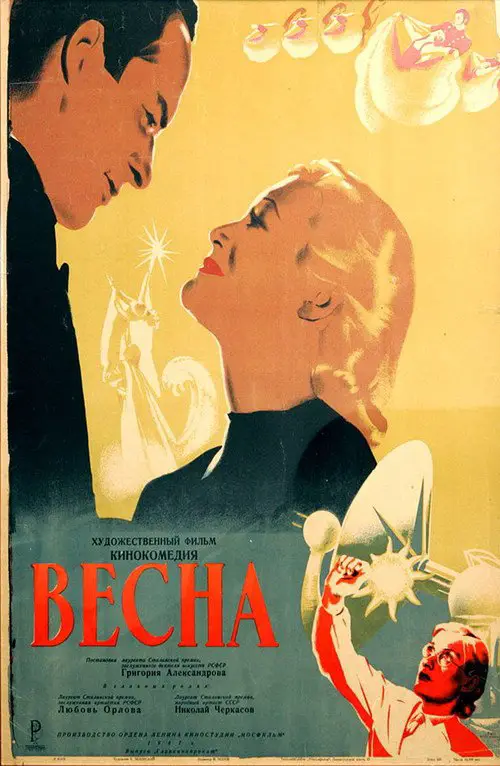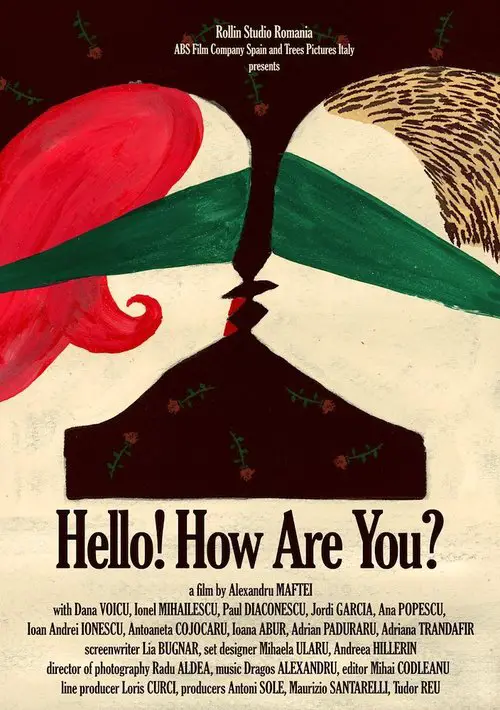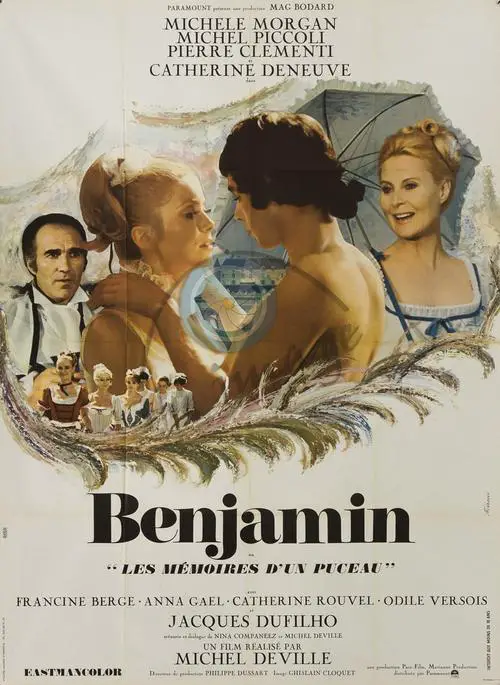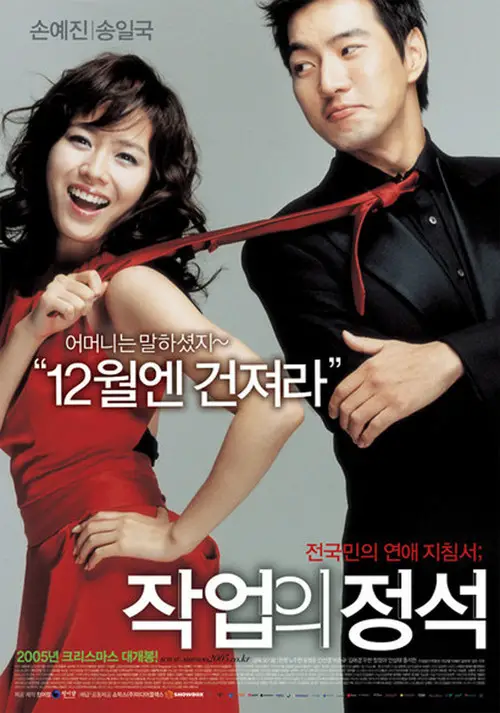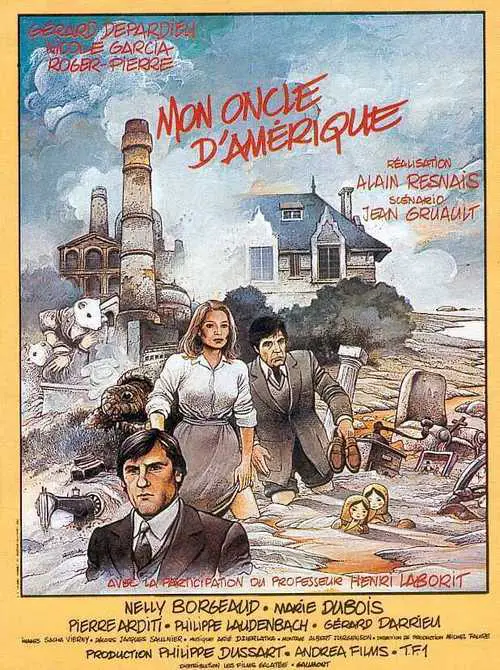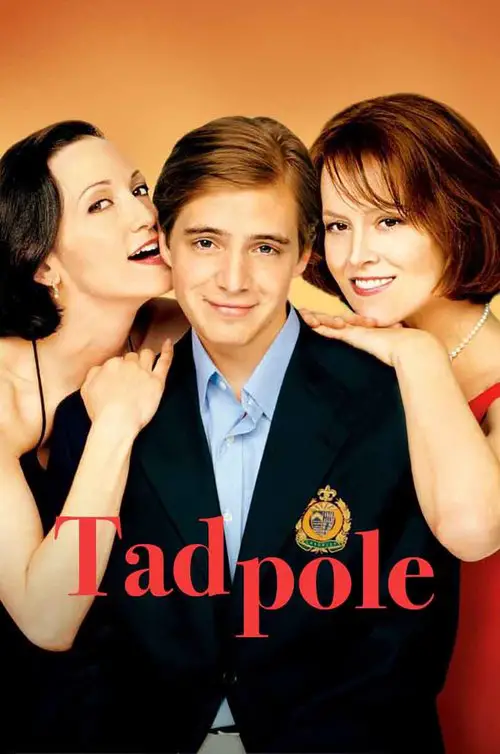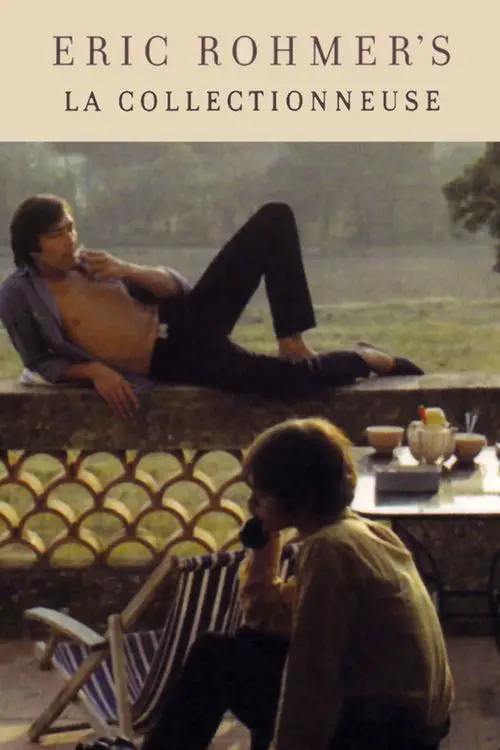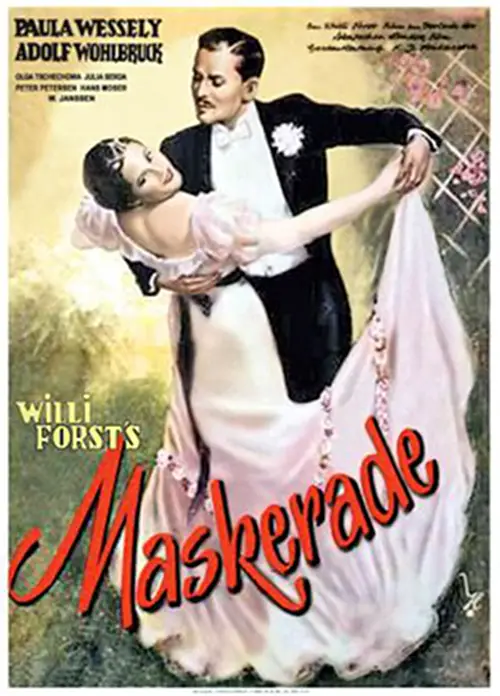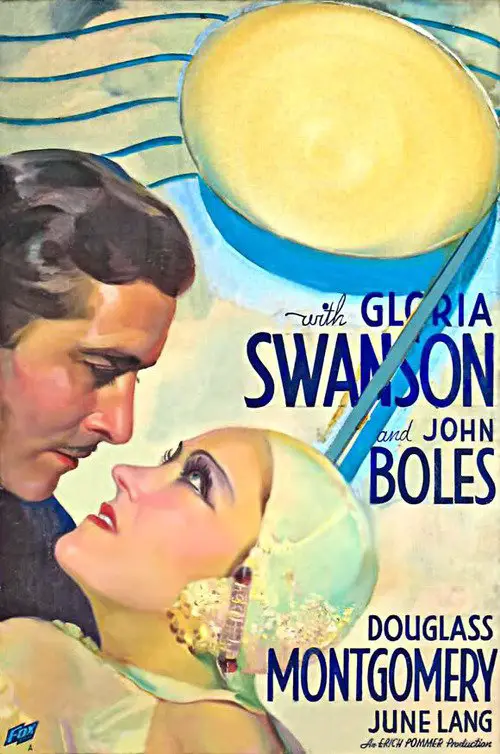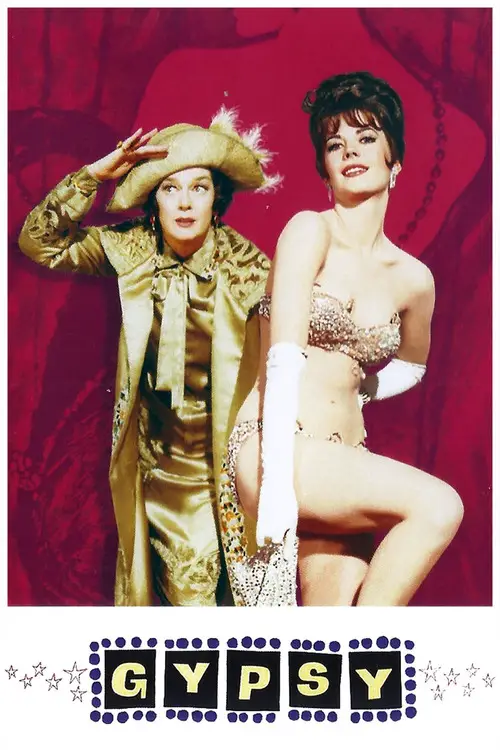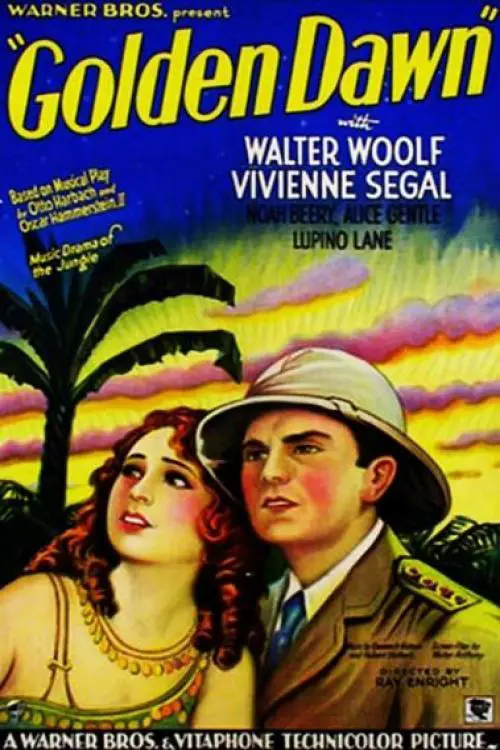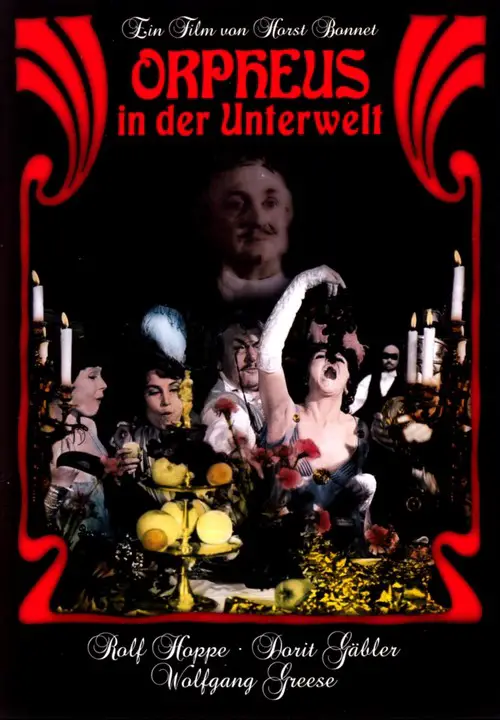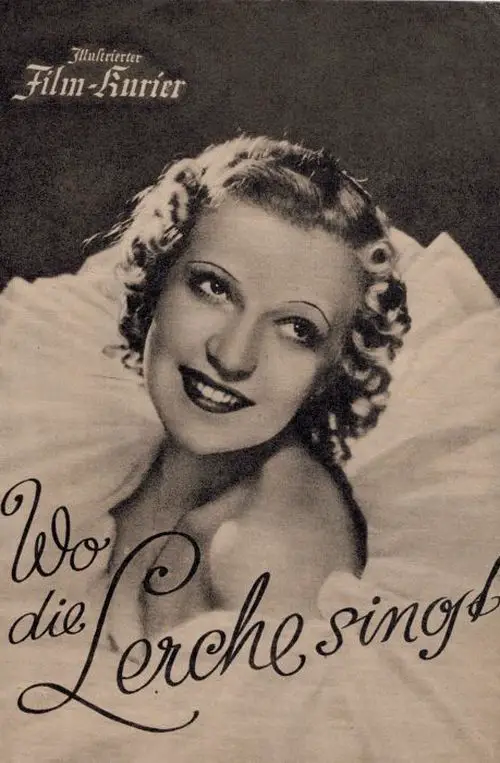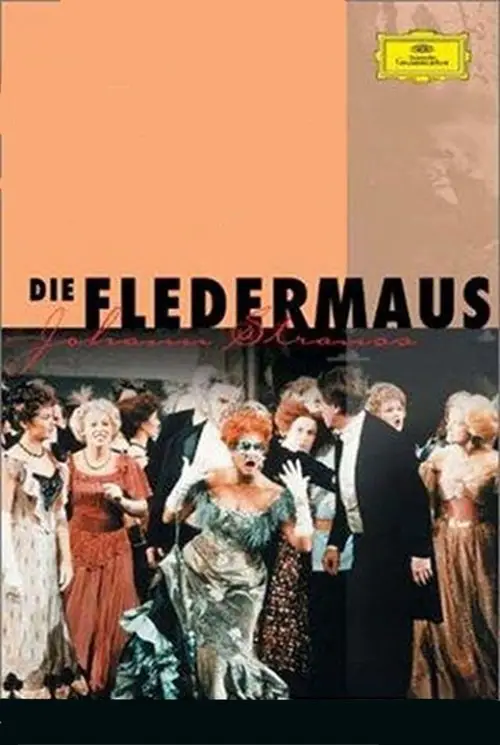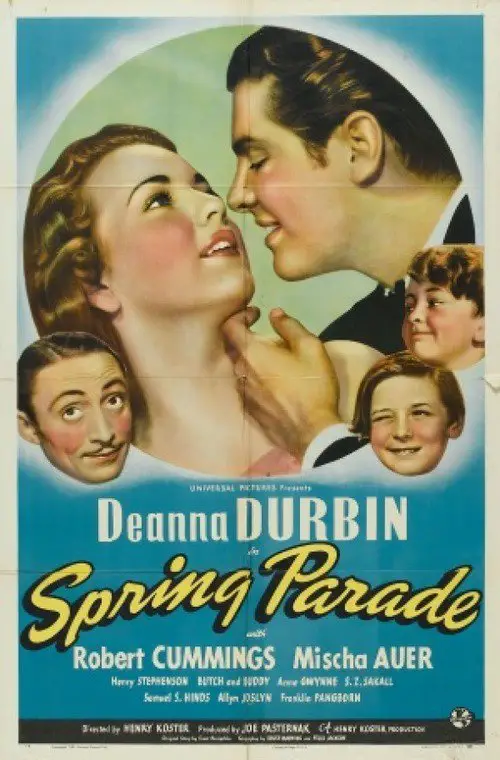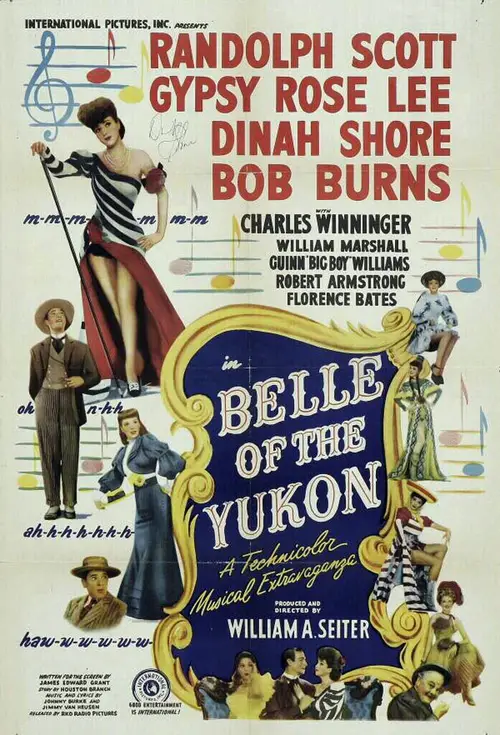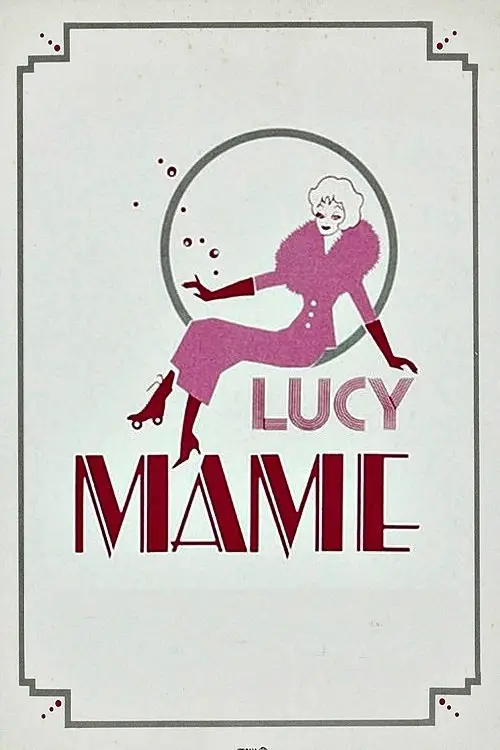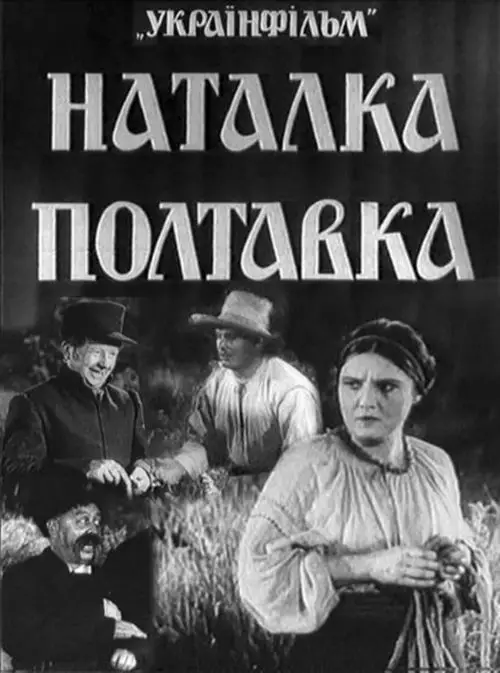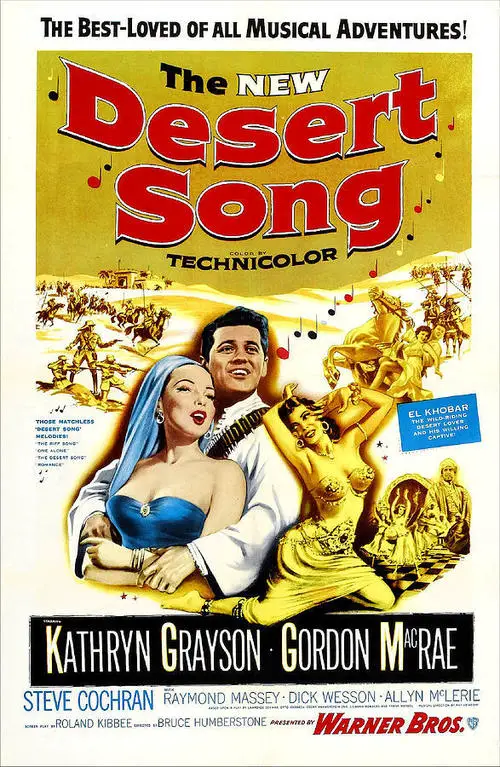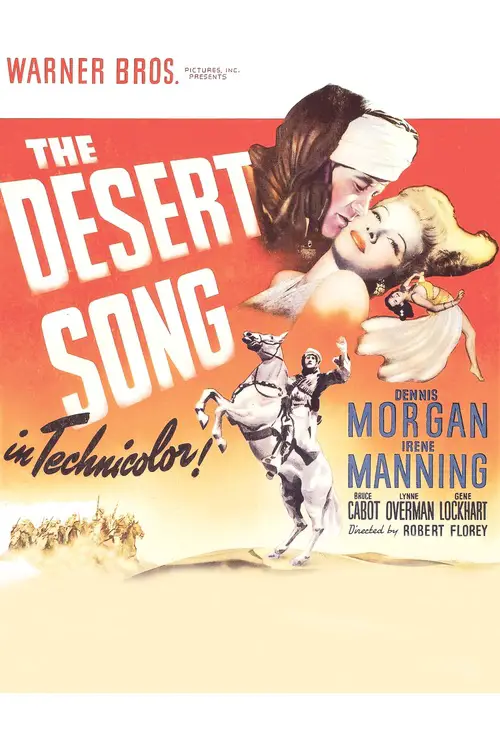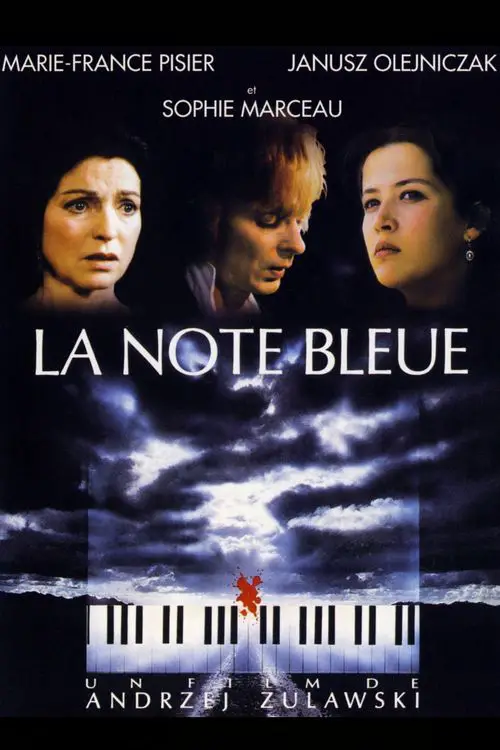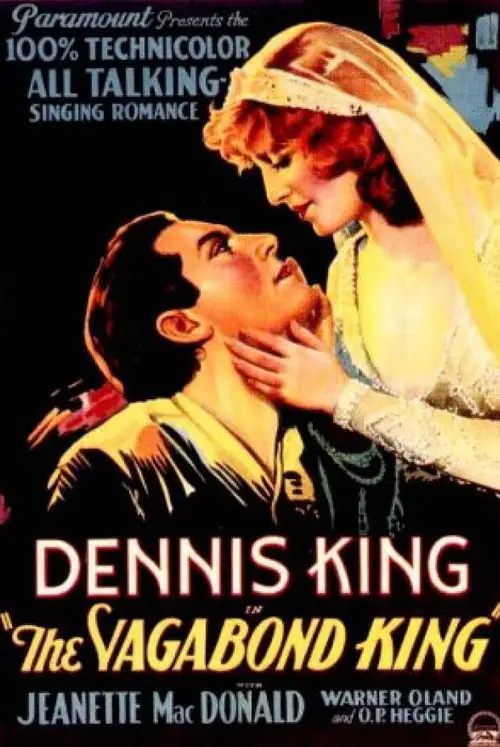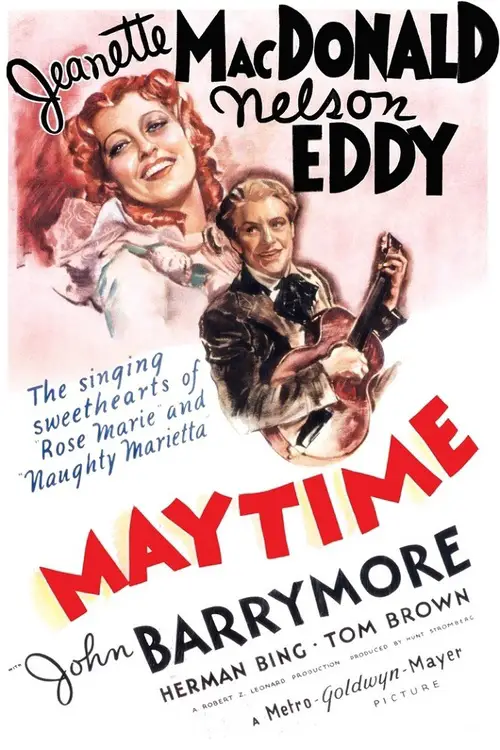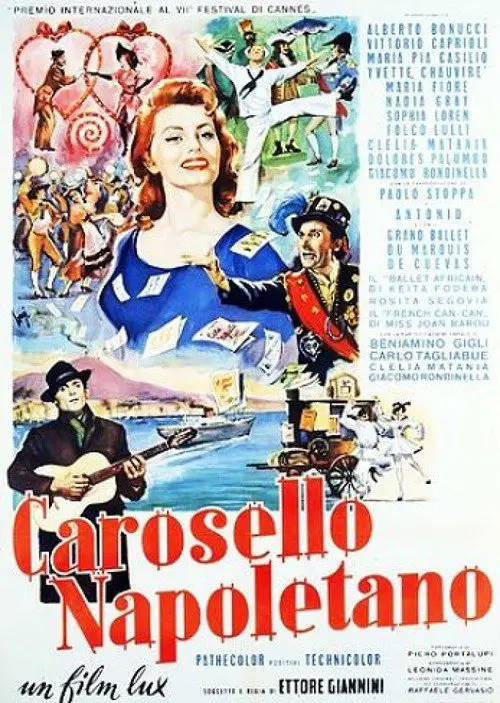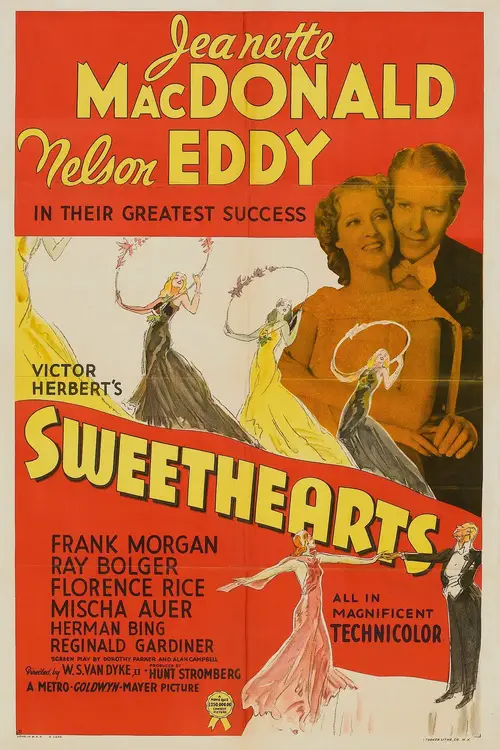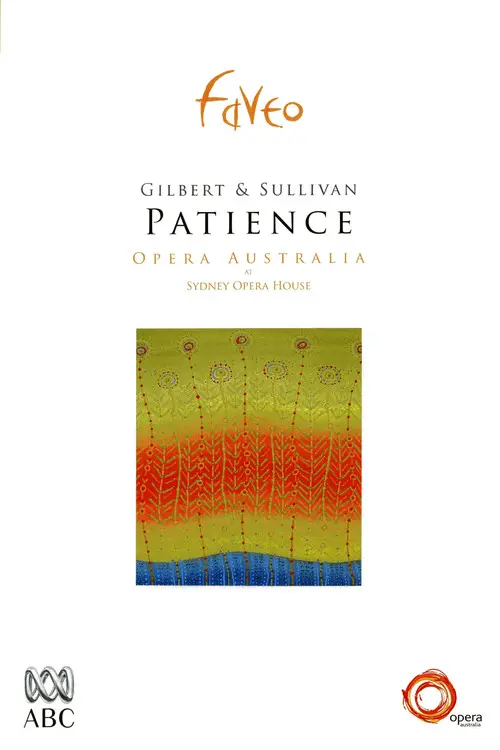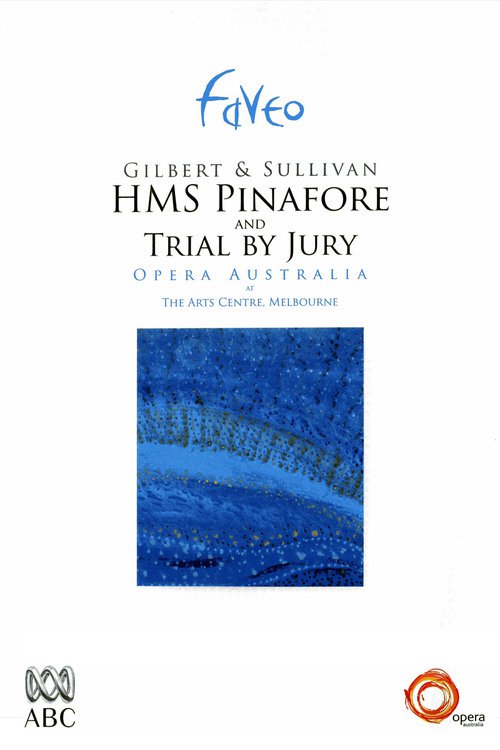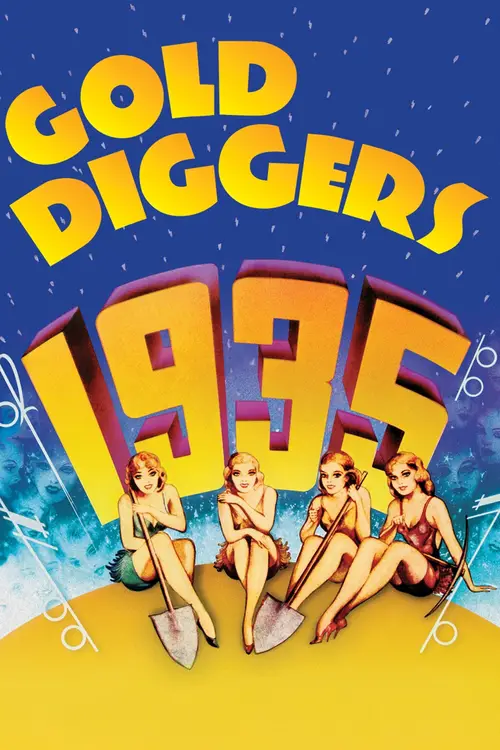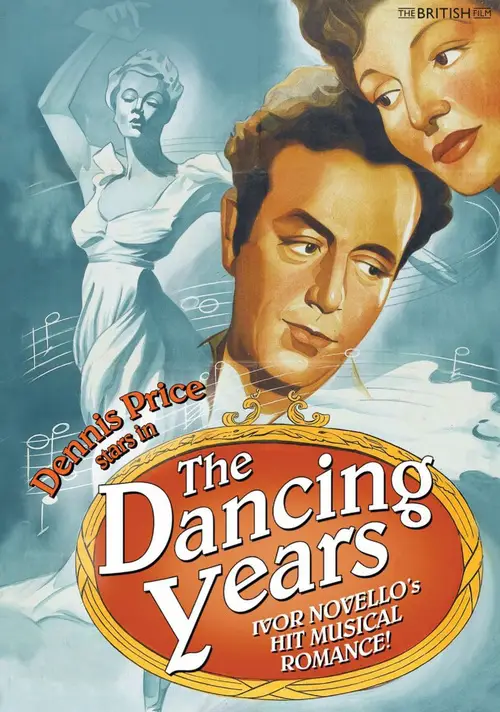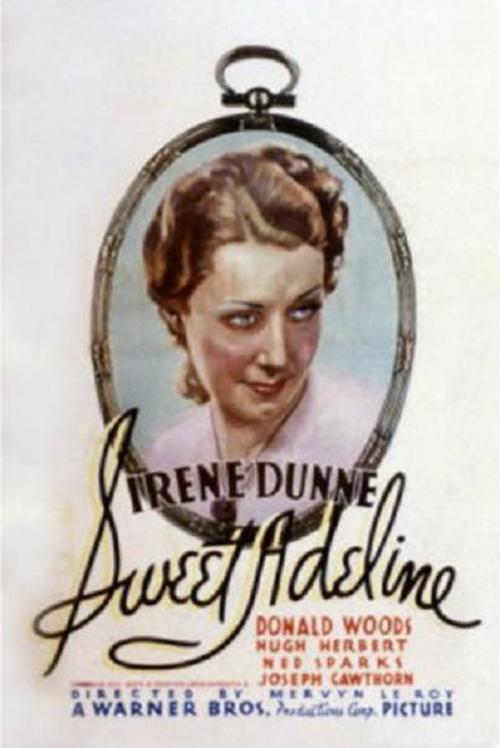The Gypsy Baron (1975)
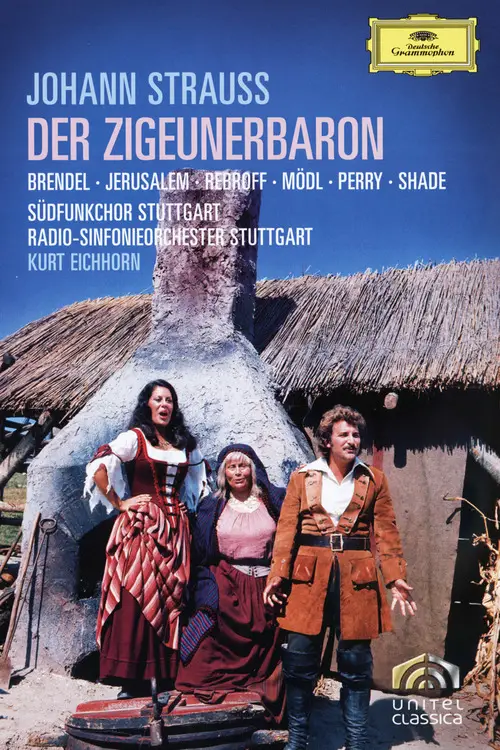
Similar movies
Paramount Pictures decided in 1935 to create a new romantic team, thus cast singing stars Carl Brisson and Mary Ellis in the frothy operetta All the King's Horses. Brisson does the "Prisoner of Zenda" bit as a movie star who is forced by circumstances to impersonate a look-alike king. Ms. Ellis is the highborn lady who seems to be fooled by the ruse. The plots roll merrily onward while various and sundry musical-comedy character actors (including Edward Everett Horton and Eugene Pallette) fuss and fume in the background. Danish singer Carl Brisson had created a minor sensation by introducing "Cocktails for Two" in Paramount's Murder at the Vanities (34), but the studio's attempts to turn him into a Scandinavian Maurice Chevalier were unsuccessful.
An illiterate stooge in a traveling medicine show wanders into a strange town and is picked up on a vagrancy charge. The town's corrupt officials mistake him for the inspector general whom they think is traveling in disguise. Fearing he will discover they've been pocketing tax money, they make several bungled attempts to kill him.
Circa 1861, Angelina, ruling countess of an Italian principality, is at a loss when invaded by a Hungarian army. Her lookalike ancestress Francesca, who saved a similar situation 300 years before, comes to life from a portrait to help her descendant. Complicating factor: the newlywed countess feels strangely drawn to the handsome invader...
Illegal immigrant and showgirl Johnny Jones is due to be deported from the USA, her only hope is to get married, but her rich publisher boyfriend Barton Kendrick is already married! She meets down-on-his-luck author, Bill Smith, and proposes a marriage of convenience in order to remain in the country, but Bill has more ambitious ideas.
Fanfan is a young handsome peasant. He joins the army to escape marriage and because a gipsy girl predicted he will get glory and the king's daughter as a wife. But the gipsy girl was in fact Adeline, the daughter of the recruiting officer. Once he has discovered the stratagem, Fanfan refuses to forget this dream and decides to fulfill the destiny of the fake prediction. Fantastic swashbuckling adventures in a 18th century setting, with a light criticism of the war and the mighty.
In the 18th century, Louis de Bourguignon is working with the Malichot's gang, but their ways are too 'unethical' for him. He creates his own band, acting under the name of Cartouche, making audacious robberies of the rich people, and even distributing the takings with the poor. Thus, cartouche attracts the people's sympathies, Venus's love, and hate from the Police and Malichot... Cartouche can escape all the traps they set at him - except the entrapments of love. Eventually, he will be saved by a woman, at her own cost.
After the operetta of the same name of Richard Heuberger in 1890-1914 all kinds of situation comic from happy-go-lucky Vienna of the turn of the century, the time of the first cars and the absurd bath costumes: Husbands in the Chambre Separee, her little dizziness and mistake plays, the tumultuous whirl of a grand ball... - A high-spirited comedy at considerable entertainment level.
A musical drawing room farce set in Paris in October, 1925. Gilberte, in middle-age, flirts with men but loves her husband Georges, wishing he were more demonstrative. He's negotiating a deal with an American, Eric Thomson, who turns out to be Gilberte's first husband from an annulled and secret stateside marriage. Along with her sister Arlette, Gilberte begs Eric not to tell Georges about the marriage. Meanwhile, a young artist, Charly, pursues Gilberte while Arlette tries to match him with the young Huguette, who loves him. Will Eric play along or try to re-win Gilberte's affection? Can Gilberte play one off against another? And who will manage to kiss whom on the lips?
Musician Gabriel and dimpled dry-cleaning proprietress Gabriela live like two strangers who no longer see each other. But in humorous contrast to their staid, passionless lives, characters in a constant state of sexual arousal surround them. Their libidinous teen son, whose hilarious voiceover commentary intermittently provides important narrative information, prides himself on being the high school stud and aspires to a career in porn. Gabriela's sexy employee switches boyfriends the way she changes clothes. And despite being married, Gabriel's colleague is working his way through the female members of their orchestra. Ultimately, the two Gabys find their virtual affairs reconnect them with their own desires, but in a way less movie-fantasy and more satisfyingly real-life. Written by Palm Springs Internation Film Festival
Unlucky in love, chemist Paul Matthews visits gypsy Madame Rosa for help. Quickly realizing he is a hopeless nerd, she gifts him with Love Potion No. 8, which makes anyone who wears it irresistible to the opposite sex for four hours. Paul and animal psychologist coworker Diane Farrow decide to test it on themselves. The awkward pair suddenly find themselves alluring to anyone they approach, but soon realize they are most attracted to each other.
This is a story about an architect Raj Malhotra. While he was a top student in his school and college days, he is not having much luck finding work, clients or projects. All he does seems to go wrong. Raj goes to a gypsy named Haseena Bano Jann who advises him that his luck is not good and he needs a lucky charm or a person who can change his life.
Min-Jun and Ji-Won are first-rate "players" who are dating gurus with 100% success rates in any dating pursuits. Following her usual systematic dating rules, Ji-Won fakes a car accident to capture Min-Jun's attention and successfully approaches him. However, her smooth-sailing dating life finally encounters turbulence. Min-Jun is also overwhelmed by the understanding that he has met his match.
A fable of emotional liberation and chocolate. A mother and daughter move to a small French town where they open a chocolate shop. The town, religious and morally strict, is against them as they represent free-thinking and indulgence. When a group of Boat Gypsies float down the river the prejudices of the Mayor leads to a crisis.
Beautiful, sophisticated women are all over Oscar Grubman. He is sensitive and compassionate, speaks French fluently, is passionate about Voltaire, and thinks the feature that tells the most about a woman is her hands. On the train home from Chauncey Academy for the Thanksgiving weekend, Oscar confides in his best friend that he has plans for this vacation--he will win the heart of his true love. But there is one major problem--Oscar's true love is his stepmother Eve. Oscar is certain that he could be a better mate to Eve than his work-obsessed father. He fails to win Eve's heart and is consequently dejected. Oscar's path to his true love is further crossed by Diane, Eve's best friend who, one night while wearing Eve's borrowed perfumed scarf, offers him temporary comfort in an unconventional tryst. For Diane, Oscar fills a void in her life. For Oscar, Diane is somewhat of a distraction, as his continued pursuit of Eve leads to an unexpected resolution.
Set in pre-WWI Vienna, Mascarade concerns a near-tragic misunderstanding over a nude painting. It is incorrectly assumed that heroine Leopoldine (Paula Wesseley) posed for the painting, when in fact the model was Gerda (Hilde von Stolz), the wife of stuffy Dr. Harrandt (Peter Peterson). The romance between Leopoldine and artist Heidendeck (Adolf Wohlbruck) is threatened when his cast-off mistress shoots him. Dr. Harrandt is summoned to perform an emergency operation on Heidenbeck, but upon discovering that the artist had painted his wife Gerda in the nude, the "good" doctor refuses to minister to Heidenbeck's wound. It is Leopoldine who appeals to the doctor's essential humanity and finally sets things right.
Golden Dawn (1930) is a musical operetta released by Warner Brothers, photographed entirely in Technicolor, and starring Walter Woolf King and Noah Beery. The film is based on the semi-hit stage musical of the same name by Oscar Hammerstein II and Otto Harbach. Beery's extraordinarily deep bass voice registers particularly well in the songs.
Country girl Margit sits for the artist Sándor, from Budapest. She is fascinated and charmed by him, and agrees to accompany him to the capital, so he can complete the painting there. Disillusionment sets in, however, when Sándor wins a prize with the finished portrait and loses interest in her. Margit recognizes that her true happiness lies at home, with Pista, her faithful lover.
DIE FLEDERMAUS follows Gabriel von Eisenstein, who faces a short prison term, as his wife Rosalinde is pursued by a former flame. Meanwhile, Dr. Falke invites everyone to a magnificent party as part of an elaborate scheme to exact revenge on Eisenstein for a youthful prank. This offers the cunning Rosalinde an opportunity to catch her womanizing spouse in the act. On the night of the party, bafflement and hilarity ensue. Carlos Kleiber leads the Bavarian State Orchestra in this performance of Johann Strauss, Jr.'s operetta. Featured singers include Eberhard Waechter, Pamela Coburn, Benno Kusche, Brigitte Fassbaender, Josef Hopferwieser, Wolfgang Brendel.
In this light and lovely romantic musical, a Hungarian woman attends a Viennese fair and buys a card from a gypsy fortune teller. It says that she will meet someone important and is destined for a happy marriage. Afterward she gets a job as a baker's assistant. She then meets a handsome army drummer who secretly dreams of becoming a famous composer and conductor. Unfortunately the military forbids the young corporal to create his own music. But then Ilonka secretly sends one of the drummer's waltzes to the Austrian Emperor with his weekly order of pastries. Her act paves the way toward the tuneful and joyous fulfillment of the gypsy's prediction.
A movie about the First World War based on a stage musical of the same name, portraying the "Game of War" and focusing mainly on the members of one family (last name Smith) who go off to war. Much of the action in the movie revolves around the words of the marching songs of the soldiers, and many scenes portray some of the more famous (and infamous) incidents of the war, including the assassination of Duke Ferdinand, the Christmas meeting between British and German soldiers in no-mans-land, and the wiping out by their own side of a force of Irish soldiers newly arrived at the front, after successfully capturing a ridge that had been contested for some time.
This film is the first adaptation of an operetta written by Ukrainian composer Mykola Lysenko. It follows the trials and tribulations of Natalka and Peter (Petro). The sweethearts planned to get married; however, Natalka's father does not approve of the marriage because Petro was not affluent enough to keep Natalka in the manner he thought that she should be kept. Petro goes off to earn the required fortune.
Shiek Yousseff, poses as a friend of the French while secretly plotting to overthrow them. Apposing Yousseff are the Riffs, whose secret leader, The Red Shadow, is Paul Bonnard, a professor who is studying the desert, and whose attacks on the supply trains intended for Yousseff keep the Riff villages in food. Foreign Legion General Birabeau arrives to conduct an investigation, accompanied by his daughter, Margot. Birabeau hires Bonnard to tutor her, and she is attracted to a Legionaire captain, Claud Fontaine. While the general, Bonnard and Fontaine pay a visit to Yousseff, an American newspaper man, Benji Kidd, discovers a secret way in and out of Yousseff's palace, with the aid of Azuri, a dancing girl in love with Bonnard. The latter is forced to resume his role as the Riffs leader, and kidnap Margot until he can convince her of Yousseff's treachery. But Yousseff's men attack the Riff camp and take Margot prisoner.
If youâre a fan of Ken Russellâs particular brand of stylistically dizzy biographies covering the lives of old-school classical composers, then youâre going to love The Blue Note, Zulawskiâs outré ode to Frédéric Chopin (played here by concert pianist/first-time actor Janusz Olejniczak.) Simultaneously achieveing wistful and surrealistic tones, the film covers the last few days of fragile Chopinâs professional life, as well as the (ahem!) overzealous behavior from the phalanx of Chopinâs celebrity admirers. Set at a lush countryside estate, The Blue Note expertly drifts back and forth from tender âlove triangleâ mode to hyper-imaginary dream-like sequences, all aided by a near-constant beautiful stream of Chopinâs piano music on the soundtrack. As well, the film is one of Zulawskiâs most personal projects, as Chopinâs Polish exile in France within the confines of the narrative mirrors Zulawskiâs own similar post-â70s exile.
The story takes place in medieval France. Poet-rogue Francois Villon, sentenced to hang by King Louis XI for writing derogatory verses about him, is offered a temporary reprieve. His hanging will be postponed for 24 hours, and in that time he must defeat the invading Burgundians and win the love of the beautiful Katherine.
Carosello Napoletano was the first major Italian musical of the postwar era. The title, which translates to Neopolitan Carousel, refers to a family of street singers. The story covers a century or so in the lives of this family, with ample screen time given over to romance and heartbreak. Basically an "inventory musical", the film spotlights several well-known Neopolitan tunes, given sprightly performances by the cast. The uncredited voice of famed tenor Beniamino Gigli is heard from time to time for the benefit of his legions of fans. At 125 minutes, Carosello Napoletano tends to wear on the viewer at times, though lovers of popular Neopolitan music and dance will get their fill.
A 1995 Opera Australia performance of Gilbert and Sullivan's classic operetta, recorded at the Sydney Opera House. Bunthorne, a poet worshiped by every lady he meets, loves only one woman: Patience. But Patience does not share the other women's fascination with Bunthorne. She loves Archibald, her childhood friend who is now also a poet.
The episodic story of a composer of operettas, Rudi Kleiber, in in old Viennese days, and the two women in his life; Maria Zeitler, his sweetheart, later mistress, lost love, an operetta star, and his first patron, and the mother of a son he did not know he had; and of Greta, his first love and companion in later years
© Valossa 2015–2025
| Privacy Policy

